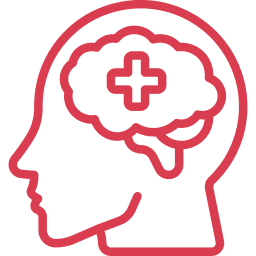Bipolar Disorder
Bipolar Disorder services offered in Doylestown and King Of Prussia, PA

Gaining Balance in Your Life
Daily life can feel like a rollercoaster before the official diagnosis of Bipolar Disorder. The constant ups and downs and mood swings ranging from depressive lows to manic highs can wreak havoc on you and those you care about most. Struggling with understanding how you can go from such highs to such lows is one of the many reasons to talk with your P.S. Psychiatry provider. Together, we can help address your symptoms and help you get back to living a more balanced life where you're in control.


Signs & Symptoms of Bipolar Disorder
Everyone experiences the ups and downs of life. For some people, though, the highs and lows are very frequent and can be pretty uncomfortable for you and those that love you. Understanding what you're experiencing is the first step in getting the help you deserve. To help you talk with your P.S. Psychiatry professional, we created this brief list of common signs and symptoms for you to reference.

Extreme Sadness: Feeling depressed or extremely sad without an external cause to match the intensity of your feeling for a significant period of time.

Racing Thoughts: You feel like your mind is going 100 miles an hour, and you can’t keep track of all of your thoughts.

Mood Swings: You feel, or others report, that you have extreme, quick, and/or frequent changes in mood with no significant external cause.

Surges of Power/Energy: You feel a decreased need for sleep, possibly staying up multiple days or only sleeping for brief periods of time.

Risky Behaviors: Engaging in sexual or non-sexual behaviors where you would likely get in trouble if you got caught.

Inflated Self-Esteem: The sensation that nothing can stop you and that you cannot lose. This typically leads to impulsive decisions with potentially significant consequences.

Treatment Options
We understand that Bipolar Disorder can feel exhausting and scary. You’ve probably already tried things to help yourself, but below are a few things that can help reduce or even eliminate some of your symptoms.

Medication: A prescription from your P.S. Psychiatry provider can help with your Bipolar symptoms.

Evaluation: A formal Neuropsychological Evaluation is critical in obtaining a formal diagnosis and an appropriate treatment plan.

Therapy: Talking with a licensed therapist is a great place to learn different strategies to navigate your Bipolar symptoms.

We're Here to Help
When you’re ready to talk, we’re ready to listen. Tap the button below to get in touch with P.S. Psychiatry and schedule your appointment.